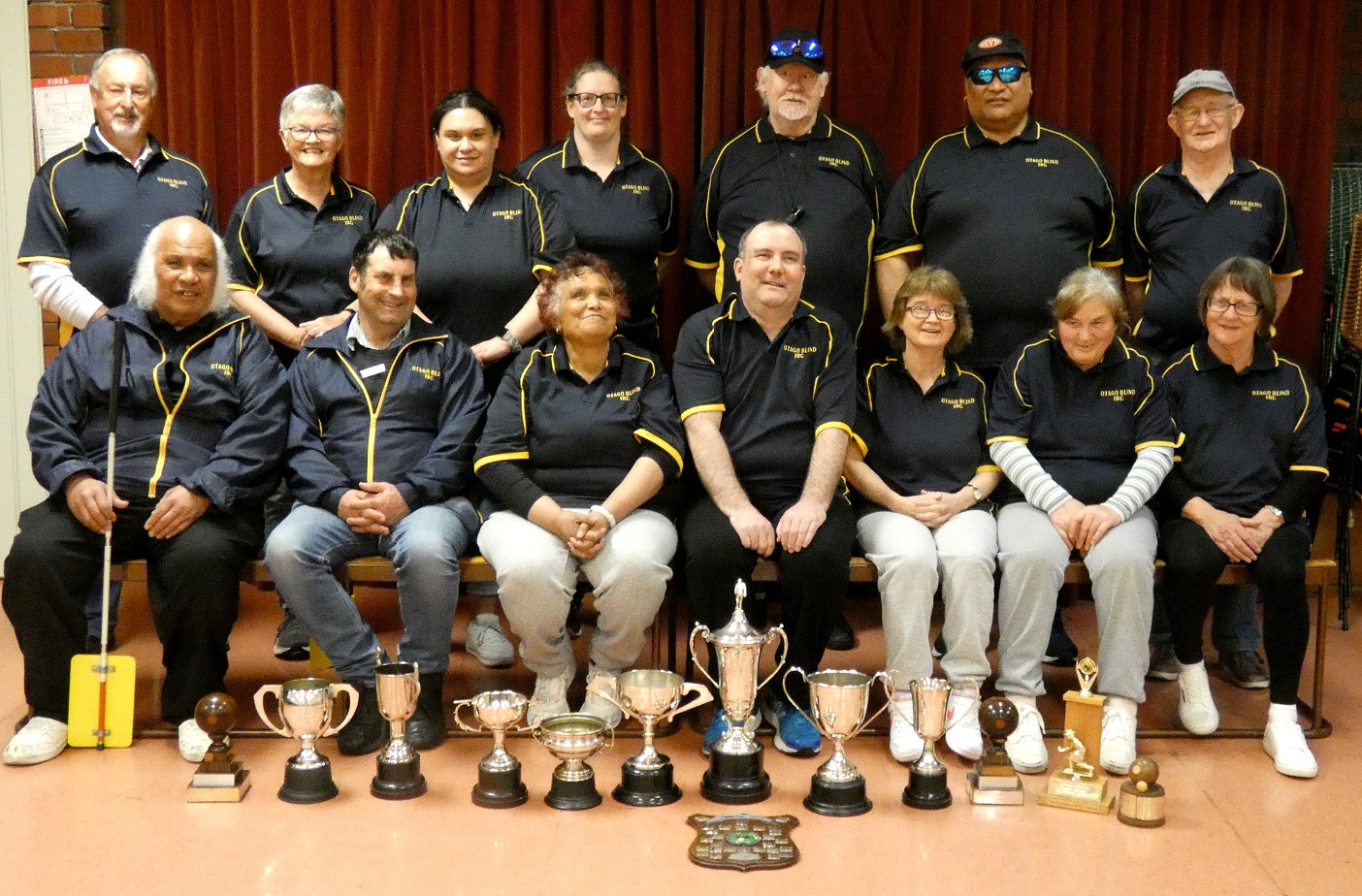
This is where the Otago Blind Indoor Bowling Club meets every week to hone their craft.
The team of ten players and their guides are practising to compete in the Blind and Vision Impaired Indoor Bowls Federation National Championships in Upper Hutt, taking place from October 21 to 23.
Guide Kevin Keogh said the blind and low vision players are given distance and angle of the jack to understand where they can direct their bowls.
Distance is given in feet, for example 18 feet to the jack, and angle is described using a clock face, for example three o’clock.
For some low vision players, guides will place a yellow card attached to a stick to help them orientate.
Club president and player Lance Patterson has limited vision and uses a monocular to help him identify where the jack is.
"Otherwise I can’t see it at all."
He began playing about seven years ago.
At first he was "terrible, absolutely terrible, the bowls would splay everywhere".
But gradually he began to learn how to play.
"It is the weight — you have got to learn the weight [of the bowls]."

The club had a successful time at the national championships last year, bringing home a raft of trophies, but he was hoping to "bring it all home" this year.
"There is always room for improvement."
The club was always looking for new members.
"We don’t want people to go blind but we want people who are out there and if they are interested to get in contact.
"It is getting the name and getting the word out there."
The New Zealand Community Trust recently awarded the club a grant of $3000 for air travel to compete in the national championships.
Blind and Vision Impaired Indoor Bowls Federation secretary Christopher Moffitt said the grant would ensure players had the chance to play against other blind and vision impaired players.
About 80 bowlers from around the country will compete.
"The sustainability of our club depends on our members being able to attend such events, giving them a tangible goal and raising the profile of the vision impaired game for potential players across Aotearoa."
Having players attend clearly demonstrated not only to mainstream players, but also to the public that there were still opportunities for people with disabilities to play a competitive sport.
"Losing your sight doesn’t mean your world ends — it just means your world changes."












